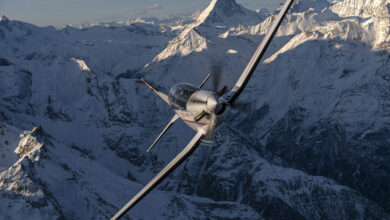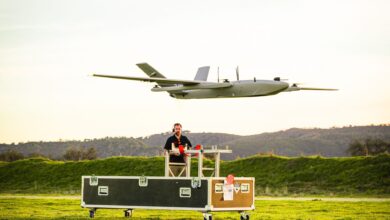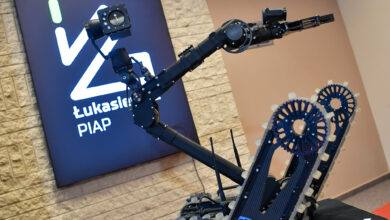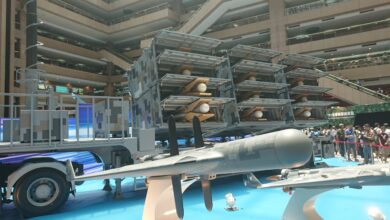‘Capture Not Possible:’ France’s Desert Operation Against Al-Qaeda Chief
In a desert wilderness in Mali, close to the Algerian border, pitted with isolated rocks and weighed by oppressive heat, French special forces and combat helicopters begin an operation.
At its climax, they claim one of the greatest successes of France’s deployment in the Sahel region of north Africa — the killing of the head of Al-Qaeda in the Islamic Maghreb (AQIM) Abdelmalek Droukdel.
The French military, for the first time, provided details on Thursday of how late last week it “neutralized” the man it has called “the third deputy” of Al-Qaeda’s leader, Ayman al-Zawahiri.
Officials describe the death of the Algerian Droukdel as the fruit of meticulous intelligence work. This was concluded by a military intervention in broad daylight, about ten kilometers (6.2 miles) from the Algerian border, east of the Malian town of Tessalit.
A source close to the operation said about 15 French special forces were dropped by at least two transport helicopters, as well as a Tiger combat helicopter and a Gazelle multipurpose helicopter, with a drone in support.
“The capture of Droukdel was not possible,” said the source, who asked not to be named. “The goal is not necessarily to kill,” said the official. But “in combat, the men see just rocks” with combatants cowering behind them. “They don’t know who is behind the gun.” The source added: “This type of individual does not surrender.”
‘Building Intelligence’
The army is not giving details of the exchanges that took place during the operation, merely confirming that fighting took place at close quarters.
“We knew that there was a target of interest in the region for two days. After that, it was all a work of mutual support, between the different sources of intelligence,” said the source. “It is a case of building it up,” said the official, without revealing the origin of the information but confirming the help of the United States.
Once the objective was identified and located, conditions in northern Mali at the beginning of the rainy season slowed down the progress of forces on the ground.
In the operation, one individual was captured and handed to the Malian authorities after being interrogated by the French forces. But the soldiers also seized important digital material, including phones, cards, and computers. Analyzing them may help explain what Droukdel, who was usually very discreet, was doing in the region.
‘Buried at the Scene’
There has for some time been major fighting between groups affiliated with Al-Qaeda with those of Islamic State in the Greater Sahara (IS-GS). These have been “violent” fights with “losses on both sides”, according to the French source.
It has not been ruled out that this could have prompted Droukdel’s presence in the area. “It’s a real question,” said the source, expressing hope that analysis would shed more light on this.
The IS-GS was designated in January as the number one enemy of France’s 5,000 strong anti-jihadist force Barkhane and its G5 Sahel allies of Mauritania, Chad, Mali, Niger, Burkina Faso. But, in the end, it was an Al-Qaeda figure who was killed in this operation.
“The fact that today we have focused a certain number of our forces on the most virulent and urgent threat has not distracted us from the surveillance of other branches”, said the source.
Once the operation was finished, the special forces “applied the standards of armed conflict: the enemy combatants were buried at the scene.” Meanwhile, the prisoner taken “will answer for his actions before the courts,” said the source.
The official praised the operational efficiency of the French forces on the ground and in the air, saying they were capable of deploying in a clandestine situation in full gear in temperatures of 45 degrees Celsius (113 degrees Fahrenheit).
In military terms, these are “extremely rustic conditions,” said the source.












